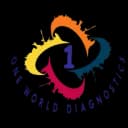Thyroid Stimulating Hormone (TSH)
Sample Type
Blood
Tube Type
Clot Tube
Fasting Required
No
Lab
Serum


Overview
The TSH (Thyroid Stimulating Hormone) test measures the level of TSH in the blood. TSH is produced by the pituitary gland and stimulates the thyroid gland to produce thyroxine (T4) and triiodothyronine (T3)—hormones essential for regulating the body's metabolism, energy production, and mood.
This test is primarily used to:
Evaluate thyroid function
Diagnose hypothyroidism or hyperthyroidism
Monitor treatment in patients with thyroid disorders
Test Result Interpretation
TSH Level | Value Range (µIU/mL) | Interpretation | Possible Causes |
|---|---|---|---|
Low | < 0.4 µIU/mL | Possible Hyperthyroidism (overactive thyroid) | Graves’ disease, thyroid nodules, excessive thyroid hormone medication |
Normal | 0.4 – 4.0 µIU/mL (may vary slightly by lab) | Euthyroid (Normal Thyroid Function) | No thyroid dysfunction |
High | > 4.0 µIU/mL | Possible Hypothyroidism (underactive thyroid) | Hashimoto’s thyroiditis, iodine deficiency, post-thyroidectomy, or certain medications |
Very High | > 10 µIU/mL | Overt Hypothyroidism | Usually requires treatment; commonly due to autoimmune thyroiditis |
Risk Assessment
TSH values alone do not confirm a diagnosis—Free T3 and Free T4 levels should also be evaluated.
Pregnancy, illness, and medications (e.g., steroids, dopamine, lithium) can affect TSH levels.
TSH reference ranges may differ slightly depending on the laboratory, patient age, or condition (e.g., pregnancy-specific ranges).